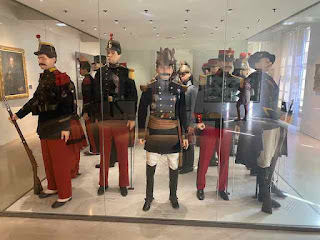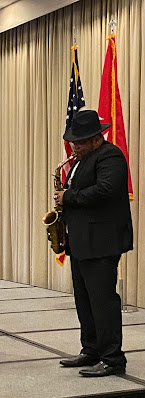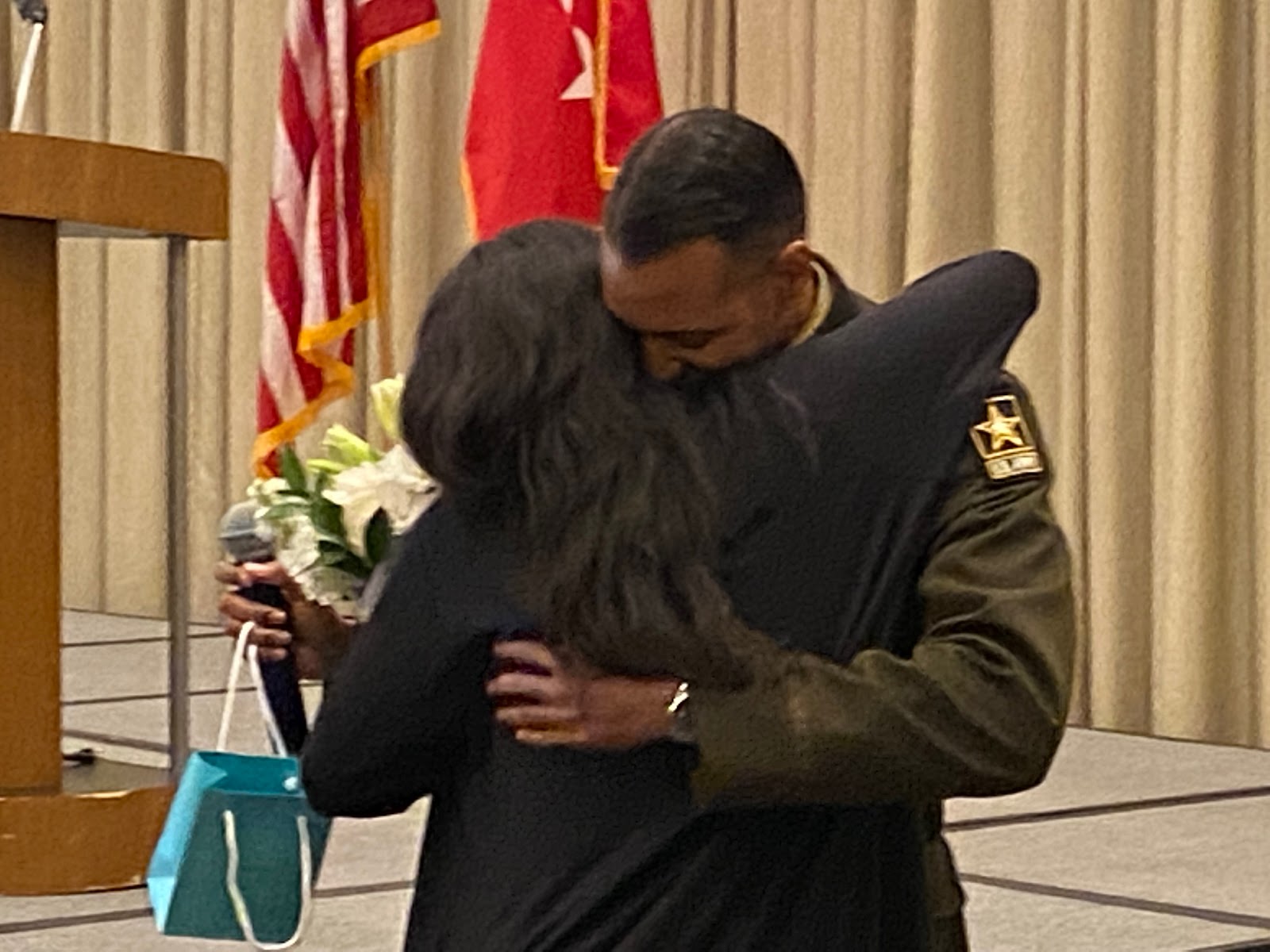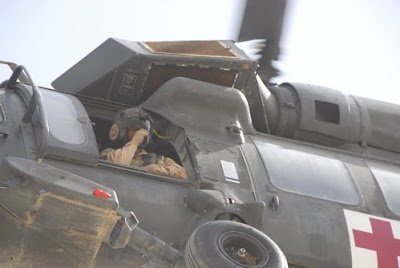A Crew Chief checking the tail rotor of his Blackhawk helicopter on the
air strip at Camp Adder, Iraq, at Sunset, November 2009.
Sometimes I get a good shot.
Twice in my long and varied work life, I was handed a camera and told to take pictures. Both times I was in the Army. I took thousands of pictures in Cold War West Germany in the late 1970s and in Iraq in 2009.
But I never became a photographer outside the Army, and I don't own a camera apart from my iPhone.
In 1978, I left my tank unit for a year to work in base headquarters writing about our unit. News articles need pictures. The brigade had a photographer, so the headquarters staff said Sgt. Anctil is the photographer. Tell him what you need pictures of and he will shoot them.
I went to Anctil. For him, photography was the lab, developing, printing. That was his happy place. He did not want to go away for 3 or 4 days or a week and take pictures of tanks at gunnery, or infantry in war games. He handed me an Olympus camera showed me how the f-stop, shutter speed and focus work and told me how to bracket pictures.

"Take lots of shots," he said. "Take a dozen rolls of film. Shoot at different f-stops and shutter speeds. I'll develop and print them."
Anctil wanted no part of playing Army. He wanted to stay on base and sleep in his private barracks room. So I learned by trial and error how to take pictures. My pictures were good enough for the base newspaper. Once I got the cover of the "Stars and Stripes" newspaper in Western Europe.
But as I learned more, I knew I did not have that deep feeling for light that separated a good photographer from a great one. I concentrated on writing and took the shots I needed to take.
When I left the Army, I never bought a camera.
Almost 30 years later I was back in the Army In Iraq and they handed me a camera. My job for the last half of our deployment was to write about soldiers. But someone had to take the pictures and that was me. So I took thousands of pictures.

Thirty years did not give me any more feeling for light and framing. So I would occasionally get a really good shot, but when I left the Army, I gave the camera back and did not get one of my own.
I take pictures now, but when I see something I really like, I want to write about it. Sometimes I forget to take a picture.
I think of myself as a professional writer, a professional soldier, and a professional dock worker--I can load a truck full and all the cargo will arrive in good shape. But I am not a professional photographer. I admire great photography in the same way I admire great cello playing: both are beautiful in their own, but I will never be a real photographer or a cellist.
But once in a while, I get lucky and get a really good shot.

























































